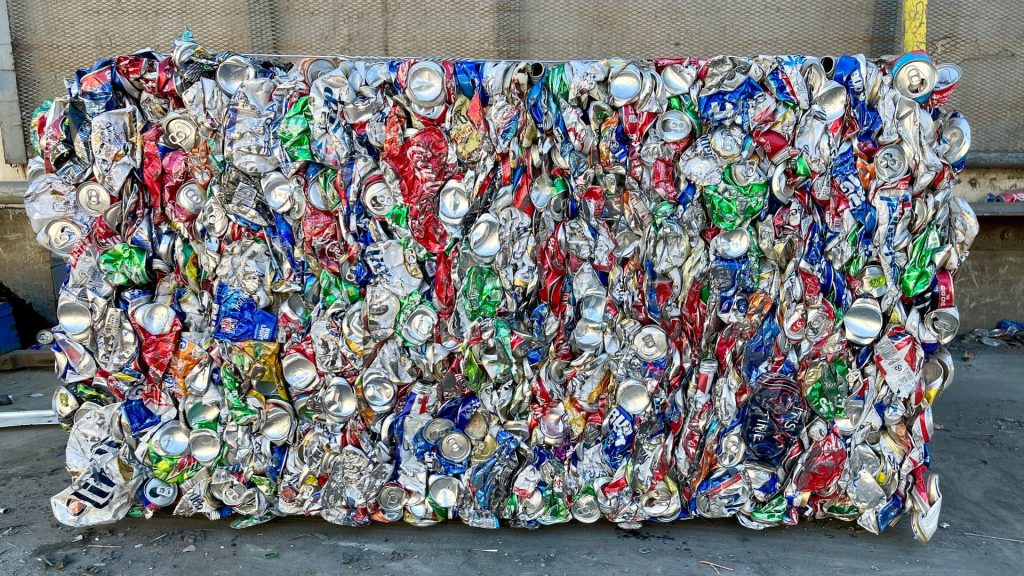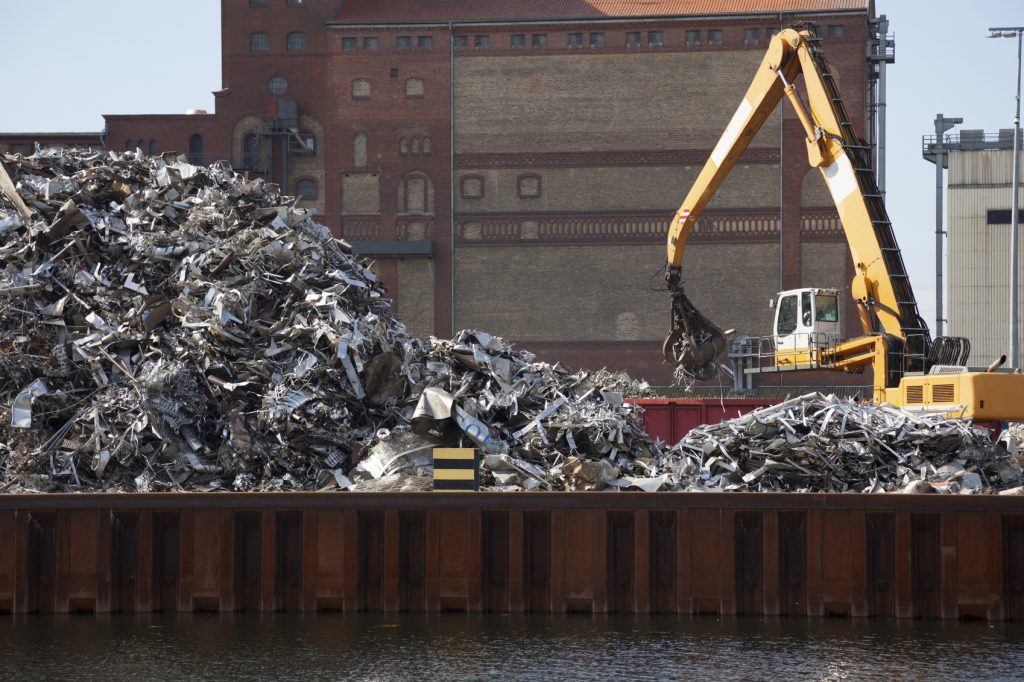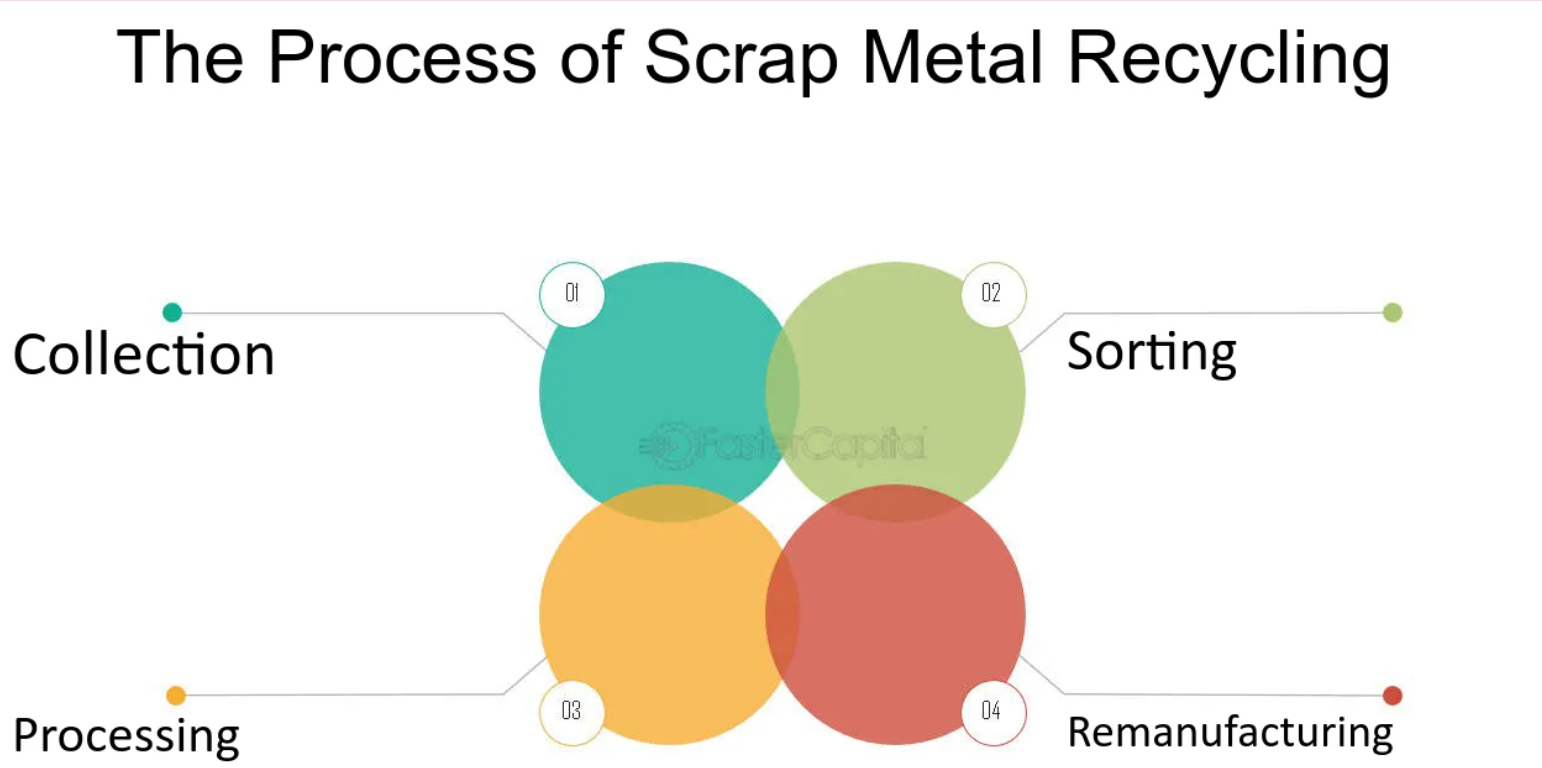The environmental issue that this increasingly responsible society is now facing has finally made recycling a significant concern today. Amid the different kinds of recycling, there is one which becomes the most important among the two, both to the environment and the economy-scrap metal recycling. The recycling process involved the collection, sorting, and recycling of scrap metals among individuals and businesses alike in efforts to promote sustainability and conservation for which they can also generate some extra income in the meantime. This article tackles the crucial concerns of how it may happen through scrap metal recycling, so you can learn how to get started as well.
Table of Contents
ToggleThe Importance of Scrap Metal Recycling
Recycling scrap metal is more than just a trend; it is a vital practice that impacts our environment and economy in profound ways.
Environmental Benefits
The environmental advantages of recycling scrap metal are considerable:
- Conservation of Natural Resources: Mining new ores and metals consumes lots of resources. This leads to the destruction of habitats, erosion of soils, and water pollution. In this aspect, recycling plays the most important role; it lowers the need for new virgin materials, thus protecting the environment from further degradation.
- Energy Savings: Reusing metals consumes less energy than producing fresh metals out of raw materials. For instance, an estimate shows that the amount of energy used in the recycling of aluminum would save almost 95 percent of what is needed for primary production.
- Reduction of Greenhouse Emissions: GHG emissions decline thanks to the decreased energy operations during recycling processes. The EPA shows that recycled metals assist in averting the emission of gasses that are harmful to the environment in the course of making new metals.
Economic Advantages
Scrap metal recycling is also economically beneficial:
- Employment Opportunities: The waste management sector is labor-intensive and offers many jobs ranging from the collection and sorting of waste to the recycling and production processes. These jobs sustain the local economies and available jobs inappropriately serve different communities.
- Recycling for Money: Selling scrap metals is also a business that can fill the pockets of an individual and enterprises. Most people do not expect that what they regard as trash can be worth some dollars.
- Boosting Local Economies: When you recycle in your area, small scale owners of recycling firms are able to operate hence strengthening the economy of your area.
Scrap Metal Collection: How It Works

Collecting scrap metal is the first step in the recycling process. Understanding what types of metal can be recycled and where to find them is essential.
Types of Scrap Metal
There are two primary categories of scrap metal:
- Ferrous Metals: As the name implies, these metals comprise iron and are attracted by magnets. Some of the common examples of ferrous metals include the following:
- Steel: This is a widely used form in building and making products.
- Cast Iron: It is mainly used in old kitchen appliances and plumbing systems.
- Non-Ferrous Metals: These are metals which do not contain iron therefore, they are generally regarded as more precious. Such metals are for example:
- Aluminum: This is used in making drink tins, foils and certain automotive parts.
- Copper: It is available in most electrical cables and in piping works.
- Brass: This is used in making pipework and other fittings.
Where to Collect Scrap Metal
You can find scrap metal in various locations, including:
- Household Activities: Renovated or broken down items such as self-sustaining facilities (in the case of refrigerators and washing machines), seats, and equipment are all potential locations for metal residue collection. It is advisable to assess items for their recycling potential instead of simply throwing them out.
- Work Sites: A lot of debris is also called scrap metal which includes for instance, steel girders, tubes or wires found during renovations and even demolition. Do not forget to ask for permission before you start collecting from these areas.
- Vehicle Servicing: Vehicle scrappage management services have a market for non-working batteries, disposed electric wheels, and engines. Auto mechanics and businesses sell used cars cut parts and in many cases have iron scrap lying around which they may give out or sell.
- Local Cleanups and Junk Removal Services: Participate in community clean-up days or check with junk removal services that may have scrap metal available for recycling.
Sorting Scrap Metal: The Key to Successful Recycling

Once you’ve collected scrap metal, sorting it correctly is crucial for maximizing its value and ensuring efficient recycling.
Why Sorting Matters
Sorting scrap metal can significantly impact the recycling process:
- Increased Value: Clean, sorted metal fetches a higher price at recycling facilities.
- Efficiency: Properly sorted metal is easier to process, resulting in a more efficient recycling operation.
How to Sort Metal
- Employ Magnets: One of the most basic methods of distinction of ferrous materials from non ferrous is the use of a magnet. Sticks to the magnet; it is ferrous, doesn’t; it is probably non-ferrous.
- Sort by Variety: Metals should be distinguished and classified. Among others, do not mix aluminum with copper and steel.
- Get Rid of Plastic Components: make the metal clean by getting rid of plastic and rubber and any other non-metal parts. This step can enhance the recycling value and also prevent the metal from being mishandled during processing.
- Label and Organize: When dealing with a larger amount of scrapped materials, it is advisable to label the different types of metals and store them in appropriate containers. This will save you time when you are taking the scrap to a recycling plant.
The Recycling Process
Understanding the recycling process can help you appreciate the journey your scrap metal takes after you drop it off.
Steps Involved
- Gathering – When you’ve already categorized your scrap metals, collect it for a means of transporting it to a recycling plant. A lot of these centers allow for drop-off services, while some can offer to collect the items for you.
- Processing – Next, Once inside the recycling plant, the scrap metal is assessed and depending on the product further sorted. This metal is then thrown in a hammer mill and melted down in electric furnaces, if applicable, based on the grade of the input.
- Selling – The scrap metals after processing are offered to resource managers who would use it in the manufacture of new items. For instance, used aluminum, which has already been recycled and processed can compose new cans while used copper wire, which has also been recycled can be used for plumbing and electrical purposes.
What Happens to Recycled Metal?
Once the recycling process is completed, the end products, like metal, can find their way back into the manufacturing systems instead of being given to the raw material markets. This plays a huge role in fulfilling the objective of conserving natural commodities and the adverse effects that come along with them. To illustrate:
- Aluminum: Recycled aluminum can be made into new cans, automotive parts, and even construction materials.
- Copper: Recycled copper is used in electrical wiring and plumbing, making it a critical material in various industries.
FAQs About Scrap Metal Recycling
To further assist you, here are some frequently asked questions about scrap metal recycling:
- What types of metals can be recycled?
- Most metals, including aluminum, copper, steel, brass, and even certain types of electronics, can be recycled.
- Do I need to clean the scrap metal before recycling?
- Yes, cleaning your scrap metal increases its value and makes the recycling process more efficient. Remove any non-metal components, such as plastic or rubber.
- Where can I sell my scrap metal?
- You can sell your scrap metal to local scrap yards, recycling centers, or specialized metal buyers. Check for reputable facilities in your area.
- Is there a difference in value between ferrous and non-ferrous metals?
- Yes, non-ferrous metals typically have a higher market value than ferrous metals. For example, copper and aluminum usually yield more money per pound than steel.
- What should I do if I have a large amount of scrap metal?
- Consider contacting local recycling centers to see if they offer pick-up services for larger quantities. Some companies may also provide containers for collection.
Conclusion
The act of collection, separation and processing of scrap metal is in practice for environmental and economic benefits and helps on both instances. By interesting in these activities, you help save some resources, lessen some wastes and may create some employment opportunities in your area. Be it the task of disposing of used batteries or cleaning up the neighborhood, every metal recycled counts.
Call to Action
Would you like to do your bit for the climate and go ‘green’? Begin with Scrap Metal Collection today! Look for nearby recycling facilities, find out how they operate, and start with recycling. Every little thing helps, and we can make a better world filled with sustainable efforts.

